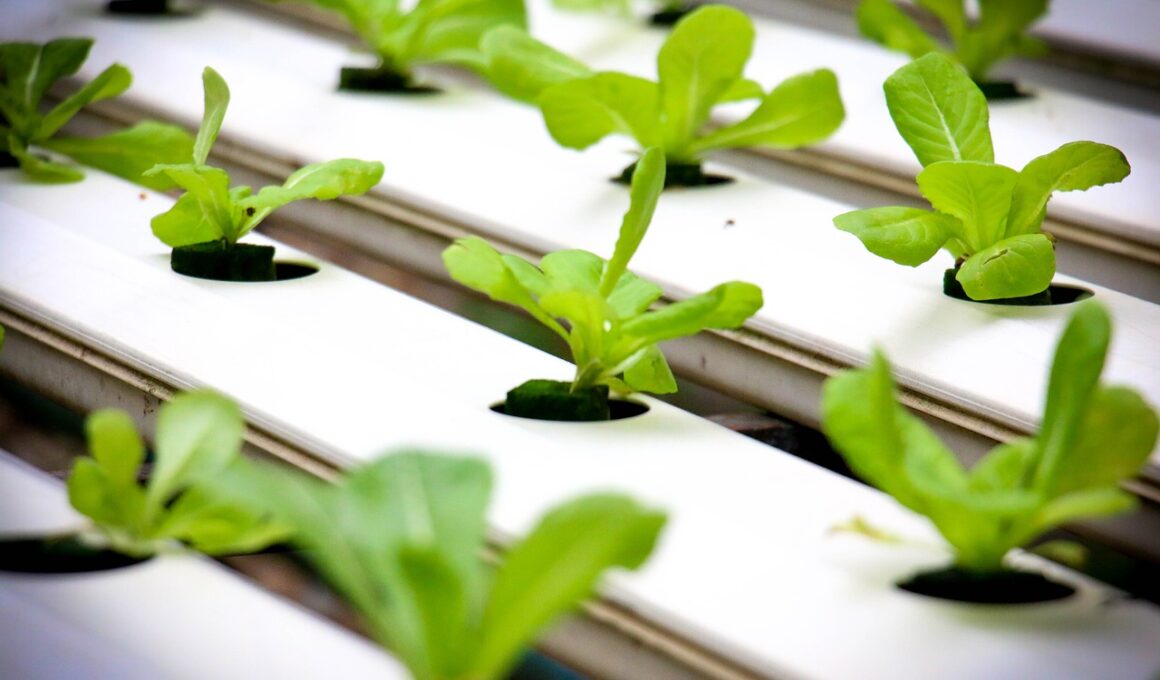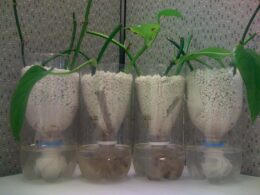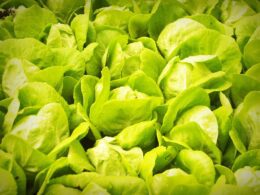Are you new to hydroponics and wondering if you can over-fertilize your plants? The short answer is yes, you can.
Fertilization is an essential part of hydroponic gardening, but it’s crucial to strike a balance between providing enough nutrients and avoiding overfeeding your plants. Over-fertilization can have severe consequences, from stunted growth to plant death, and it’s essential to understand how to avoid it to ensure your hydroponic garden thrives.
In this article, we’ll explore the importance of fertilization in hydroponics, the dangers of over-fertilization, and how to identify and prevent it. We’ll also provide you with best practices for fertilizing your hydroponic plants, so you can keep them healthy and vibrant without the risk of causing harm.
Whether you’re a beginner or an experienced hydroponic gardener, this article will help you achieve optimal results while keeping your plants safe.
Understanding the Importance of Fertilization in Hydroponics
You’ll love the way proper fertilization techniques can enhance the growth of your hydroponic plants, leading to a bountiful and healthy harvest. Fertilization is an essential aspect of hydroponics, as plants rely on nutrients to grow and thrive. Without the proper nutrients, your plants may suffer from stunted growth, yellowing leaves, and poor yields.
One of the benefits of hydroponic fertilization is the ability to control the nutrient ratios for optimal plant growth. Unlike traditional soil gardening, hydroponic systems allow you to tailor the nutrient solution to the specific needs of your plants. By providing the right mix of essential nutrients, such as nitrogen, phosphorus, and potassium, you can promote healthy foliage, strong roots, and high-quality fruits and vegetables.
However, it’s important to note that over-fertilization can be detrimental to your plants. While it may be tempting to add more nutrients in hopes of boosting growth, too much of a good thing can lead to nutrient burn, which can cause leaf damage and even plant death. That’s why it’s crucial to follow recommended feeding guidelines and monitor your plants closely to ensure they’re receiving the right amount of nutrients.
With proper fertilization techniques, you can enjoy a thriving hydroponic garden that produces healthy and delicious crops.
The Dangers of Over-Fertilization
Excessive nutrient application in hydroponic systems can have detrimental effects on plant growth and health. While it may seem like more nutrients would lead to better growth, over-fertilization can actually harm your plants.
One issue that can arise from over-fertilizing is nutrient lockout. This occurs when the excess nutrients in the growing medium interfere with the plant’s ability to absorb the proper balance of nutrients it needs to grow.
Another danger of over-fertilization is pH imbalances. Plants require a specific pH range in their growing medium to absorb nutrients effectively. When too many nutrients are added, the pH level can become imbalanced, making it difficult for plants to absorb the nutrients they need. This can lead to stunted growth, yellowing leaves, and other signs of nutrient deficiencies.
To avoid over-fertilization, it’s important to follow the manufacturer’s instructions for nutrient application and to regularly test the pH level of your growing medium. If you notice signs of nutrient deficiencies, resist the urge to add more fertilizer. Instead, adjust the pH level and make sure your plants are receiving the proper amount of light and water.
By taking a cautious and attentive approach to fertilization, you can help ensure the health and growth of your hydroponic plants.
Signs of Over-Fertilization
If your plants are showing signs of yellowing leaves, stunted growth, or pH imbalances, it may be due to adding too many nutrients to your hydroponic system. Over-fertilization can occur when you add too much fertilizer or nutrients to your solution, leading to a buildup of salts and minerals.
These excess nutrients can negatively impact the health of your plants and reduce their ability to absorb water and nutrients properly. Identifying symptoms of over-fertilization is crucial to ensure that your hydroponic system is functioning optimally.
Signs of over-fertilization include stunted growth, leaf burn, yellowing leaves, and a pH imbalance. If you notice any of these symptoms, it’s important to take corrective measures immediately. This can involve flushing your system with clean water to remove excess salts, reducing the amount of nutrients added to your solution, and monitoring your pH levels regularly.
Corrective measures can help prevent over-fertilization from damaging your plants and ensure that they remain healthy. By monitoring your hydroponic system and identifying any early signs of over-fertilization, you can take prompt action to prevent any long-term damage to your plants. Remember to always use high-quality nutrients and follow the recommended dosages to ensure that your hydroponic system operates efficiently and your plants thrive.
Does Over-Fertilizing Hydroponic Plants Affect Oxygen Levels?
Over-fertilizing hydroponic plants can indeed affect oxygen levels. While hydroponic systems rely on a precise balance of nutrients, excessive fertilization can result in an overabundance of organic matter. This can lead to oxygen depletion in the water, putting stress on the plants and potentially stunting their growth. Maintaining the right balance is crucial for the well-being of hydroponic plants and excess oxygen.
How to Avoid Over-Fertilization
To keep your plants healthy and thriving, it’s important to prevent nutrient toxicity by adjusting nutrient levels in your hydroponic system. Over-fertilization can cause a buildup of salts and minerals that can harm your plants. The best way to avoid this is to closely monitor the nutrient levels in your system and adjust accordingly.
Regularly flushing your system can also help prevent over-fertilization. Flushing your system means running clean water through it to remove any excess nutrients or salts that may have built up. This will help keep your plants happy and healthy by maintaining a balanced nutrient solution in your hydroponic system.
In addition, it’s important to follow the instructions on your fertilizer carefully. Over-fertilization can occur when too much fertilizer is added to the water. By carefully measuring and adjusting the dosage, you can prevent this from happening.
Remember, keeping your plants healthy and happy is all about maintaining a balanced nutrient solution in your hydroponic system.
Best Practices for Fertilizing Your Hydroponic Plants
Let’s explore the best ways to fertilize your hydroponic plants and keep them thriving! Hydroponics is a soilless gardening method that requires careful management of nutrient solutions. To ensure optimal plant growth and prevent over-fertilization, you should follow these best practices:
-
Maintain the pH level of your nutrient solution. Most plants prefer a pH range of 5.5 to 6.5. Use a pH meter or test kit to monitor the pH level regularly and adjust it as needed with pH up or down solutions.
-
Use the right nutrient solution for each crop. Different plants have different nutrient requirements. Follow the manufacturer’s instructions and use a nutrient calculator to determine the appropriate ratios for your plants.
-
Feed your plants with nutrient solution on a regular schedule. Most hydroponic systems require daily or weekly feeding, depending on the crop and stage of growth.
-
Use filtered or dechlorinated water. The quality of your water can affect the nutrient uptake of your plants. Prevent any harmful chemicals from damaging your plants.
-
Periodically flush your system with plain water. Remove any excess salts or minerals that may accumulate and cause nutrient imbalances.
By following these best practices, you can prevent over-fertilization and ensure optimal plant growth in your hydroponic garden. Remember to monitor your plants regularly and adjust your nutrient solution accordingly. Happy growing!
Frequently Asked Questions
Can I reuse the nutrient solution after over-fertilizing my hydroponic plants?
If you’ve over-fertilized your hydroponic plants, you may be wondering if you can still reuse the nutrient solution. Unfortunately, over-fertilization can have negative effects on plant growth, such as stunted growth, root damage, and nutrient burn.
As a result, it’s not recommended to reuse the nutrient solution after over-fertilization. It’s best to discard the solution and start fresh with a new batch of nutrients.
Remember, it’s better to under-fertilize than to over-fertilize, as this minimizes the risk of harming your plants. So, be sure to follow the recommended nutrient dosages and monitor your plants regularly to ensure they’re thriving.
Can over-fertilization cause damage to my hydroponic system?
Preventing over-fertilization is crucial for maintaining the health of your hydroponic system. Signs of over-fertilization in hydroponics include stunted growth, yellowing leaves, and burnt roots. It’s important to monitor your plants regularly and adjust your nutrient solution accordingly.
One way to prevent over-fertilization is to start with a lower concentration of nutrients and gradually increase as your plants grow. Additionally, using a nutrient meter or test kit can help ensure that your nutrient solution is at the proper level.
By taking these steps, you can avoid damaging your hydroponic system and ensure the success of your plants.
How do I know if I have under-fertilized my hydroponic plants?
If you’ve noticed that your hydroponic plants aren’t growing as well as they should be, it could be a sign that you’ve under-fertilized them. Symptoms of under fertilization can include stunted growth, yellowing leaves, and a lack of overall vigor.
To prevent nutrient deficiencies, it’s important to regularly check and adjust your nutrient solution. Keep in mind that different plants have different nutrient requirements, so be sure to research the specific needs of your plants.
By taking the time to properly fertilize your hydroponic system, you can ensure that your plants are healthy and thriving.
Is it possible to fix over-fertilization once it has occurred?
If you over-fertilize your hydroponic plants, it can cause a range of problems, such as nutrient burn, stunted growth, and decreased yield. However, there is a solution: nutrient flush. This involves flooding your hydroponic system with pH-balanced water to remove excess nutrients.
While this can be an effective solution, prevention is always better than cure. To avoid over-fertilization, you should carefully measure the nutrients you add to your system, and make sure you’re following the manufacturer’s instructions. You should also regularly test the pH and nutrient levels of your solution, and adjust accordingly.
By taking these simple prevention measures, you can avoid over-fertilization and ensure your hydroponic plants thrive.
Can different types of hydroponic plants require different levels of fertilization?
Different types of hydroponic plants have varying nutrient requirements and growth rates. This means that some plants may require more or less fertilization than others. It is important to research the specific needs of the plants you are growing in order to avoid over or under fertilizing.
Over-fertilization can lead to a buildup of salts and minerals in the growing medium, which can harm the plants and even cause them to die. To ensure the best growth and health of your hydroponic plants, it’s essential to provide them with the correct amount of nutrients based on their individual requirements.
Conclusion
So, can you over-fertilize hydroponics? The answer is yes, and it can lead to serious problems for your plants.
Over-fertilization can cause nutrient burn, which can damage or even kill your plants. It can also lead to pH imbalances and other issues that can harm your hydroponic system.
Luckily, there are steps you can take to avoid over-fertilization. By understanding the importance of fertilization, paying attention to your plants, and following best practices for fertilizing your hydroponic plants, you can help ensure that your system stays healthy and your plants thrive.
Remember, less is often more when it comes to fertilization in hydroponics, so be careful not to overdo it. With a little care and attention, you can enjoy a thriving hydroponic garden without risking over-fertilization.









